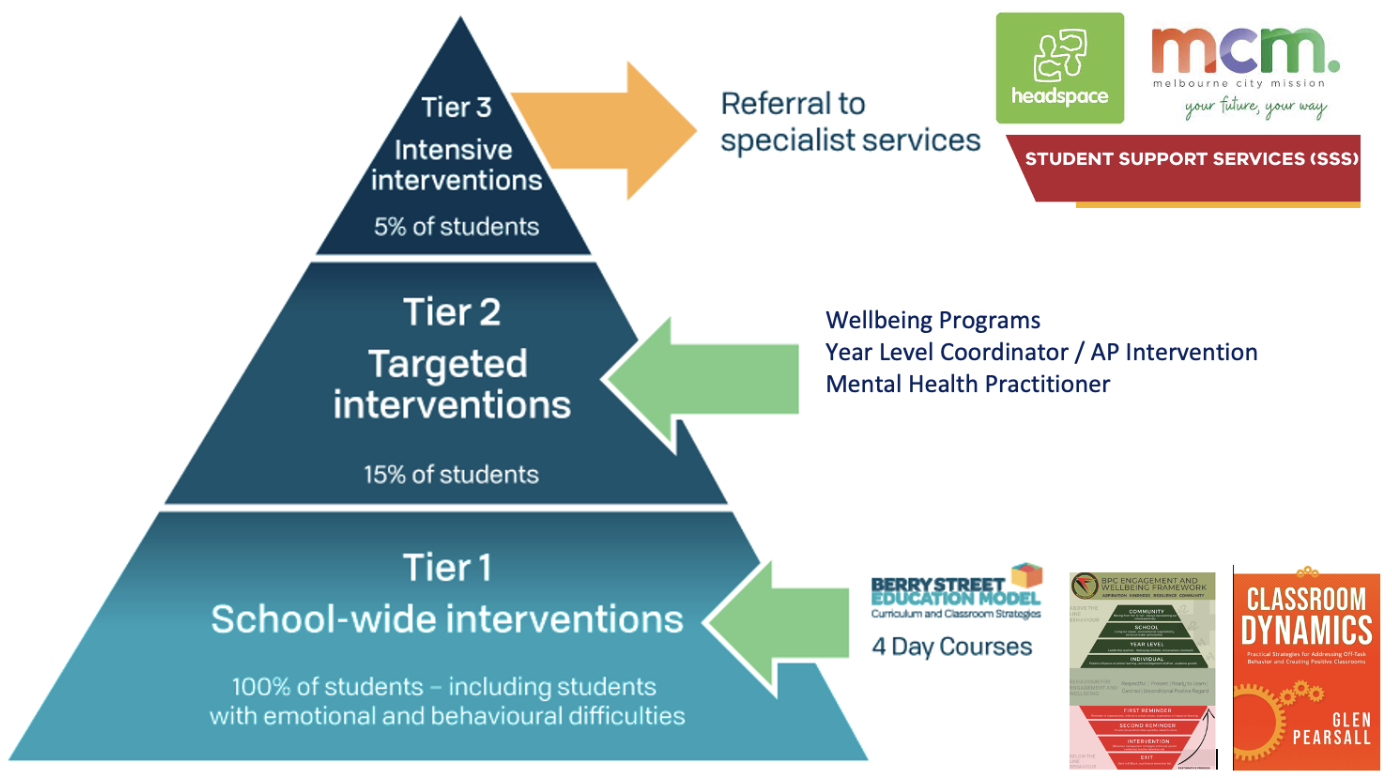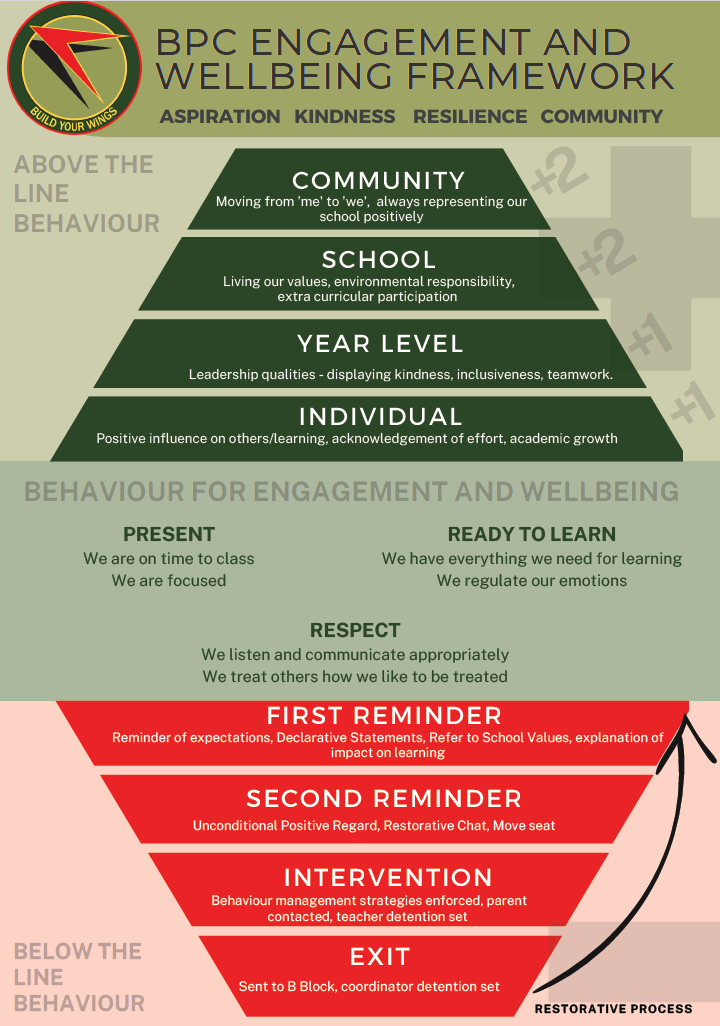We take a holistic approach to promoting whole-school engagement and wellbeing through evidence-based strategies and tiered interventions. All staff, including our Wellbeing Team and Year Level Coordinators, are responsible for supporting students to have a positive learning experience.
Student Engagement & Wellbeing for Learning
So that all students can learn, they need to be well, feel safe and engaged. At Buckley Park College we take a holistic approach to promoting whole-school engagement and wellbeing
At BPC, we invest significantly in supporting our staff to create and maintain a safe and inclusive learning environment. We use evidence based strategies from Berry Street Education Model (BSEM) along with other High Impact Wellbeing Strategies (HIWS) to maintain consistent and predictable routines for students which provides a framework for responding to engagement and learning needs.

Home Group 7-12
Students in years 7 - 12 have one dedicated period each week which enables students to connect with each other and a dedicated teacher who advocates for their wellbeing and learning.
Middle Years Home Group will focus on areas such as:
- Transition
- School advocacy
- Assemblies / Guest Speaker Presentations
- Emotional Intelligence (Swinburne University Aristotle EI Partnership)
- Study Skills
- Respectful Relationships
- Personal Organisation
- Collaboration in class / school-based projects
Later Years will focus on areas such as:
- VCAA / VCE / VM Administration
- Assemblies / Guest Speaker Presentations
- Applying study skills
- Study mentoring
- Emotional Intelligence / managing stress
- Respectful Relationships
Responding to Student Behaviours
Our classroom Student Engagement & Wellbeing for Learning (SEWL) Framework is informed by the Department of Education's School Wide Positive Behaviour in Schools (SWPBS) framework which provides evidence based approaches to developing contextualised school-wide procedures when responding to student behaviours. Informed by staff and student voice, in conjunction with BSEM and other evidence-based wellbeing strategies, all classrooms have the following SEWL Framework displayed to provide a consistent set of staged responses when responding to student behaviours.

At Buckley Park College, all staff share fundamental beliefs that we routinely use: Unconditional Positive Regard, Process Praise, Connection before Correction and Whole School Relationships in our everyday practice
Students receive acknowledgement through use of Process Praise which is specific to the task(s) they do, and may also receive Positive Chronicle House Points which go towards their respective House Totals. All students are able to contribute to their House receiving a semesterly award, and the overall annual Seymour Cup, presented at the end of year.
Wellbeing Team
Our Wellbeing Team is made up of student counsellors, a Mental Health Practitioner, and a team of provisional counsellors on University placement. The team supports the implementation of whole-school approaches to student wellbeing and offers individual support for students in need on a day-to-day basis. This includes working closely with families, Year Level Coordinators and other staff where appropriate, and making referrals or recommendations to external services as needed to provide support.
Wellbeing Programs
Our Wellbeing Leaders and Support staff assist the College in providing identified cohorts of students who require additional support. There are a variety of wellbeing programs that BPC utilises to educate young people about their rights and responsibilities when interacting in the community and with each other. Some examples of programs which we have used to target specific cohorts have included:
- Peer Support Program
- Drumbeat
- RAGE
- Year 7 Friendship Saver
- Girls Group
- Pat Cronin Foundation Presentations
- Tomorrow Man
- Think U Know
- Swinburne University - Aristotle Emotional Intelligence: Year 10 Leadership Program
- Lunchtime Clubs for various interests or needs
Community Partnerships & Affiliations
We place significant emphasis on establishing and maintaining strong working partnerships with other local and national charities and organisations to support our students and staff. We take pride in working closely with a variety of organisations to help address the social, emotional and learning needs of targeted cohorts.
Victoria Police - (Moonee Ponds and Brunswick Youth Crime Prevention Team)

Intensive Support
On some occasions, there is a need to utilise the support from external services to provide a 'Team Around the Learner' approach. Working in partnership with the family we can assist with connecting relevant support services to address specific concerns. Some examples of such services might include:
- Child First - Orange Door
- Headspace
- Orygen
- Melbourne City Mission
- Department of Education - Student Support Services
